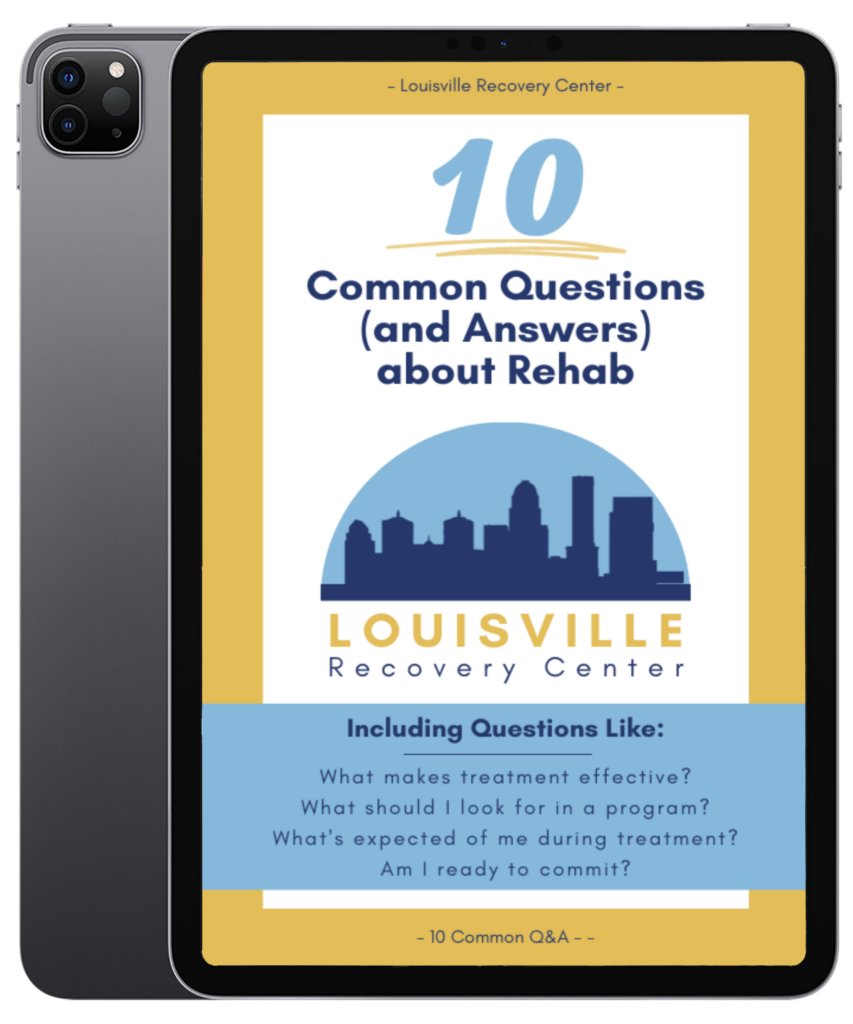Guide to Substance Abuse Treatment in Lexington, KY
In 2021, Kentucky saw 1,897 opioid overdose deaths, accounting for 80% of all drug overdose deaths in the state. When it comes to substance abuse in the state, the numbers are rising, but treatment options are becoming more accessible. Finding the right drug rehab in Lexington is the first step to achieving a sober lifestyle. The scariest part for most people is figuring out how to get the process started – but with the right substance abuse treatment center on your side, you can navigate the process easier and find long-term success in sobriety.
What is Treated at a Drug Rehab in Lexington?
If you’re struggling with a substance use disorder, addiction treatment centers in Lexington can help. These drug and alcohol rehab centers can provide invaluable support to help people find recovery. While each treatment center may have different specialities, in general, treatment centers can help with:
- Alcohol Use Disorder (AUD): This chronic relapsing brain disease is characterized by compulsive alcohol use, loss of control over alcohol intake, and a negative emotional state when not using.
- Drug Addiction: Substance abuse treatment centers cater to various drug addictions such as opioid addiction, cocaine addiction, methamphetamine addiction, and others.
- Prescription Medication Abuse: Abuse of prescription medications, such as painkillers, sedatives, and stimulants, is also a significant concern and is typically treated at these centers.
- Behavioral Addictions: While substance abuse treatment centers primarily focus on substance addictions, some may also address behavioral addictions such as gambling addiction, sex addiction, or internet addiction if they contribute to the individual’s substance abuse issues.
- Dual Diagnosis: When someone has both a substance abuse disorder and a mental health disorder, it’s referred to as dual diagnosis. Centers may specialize in treating individuals with dual diagnosis conditions.

Fill Out This Quick Form To Download Our FREE 10 Q&A About Rehab eBook
Treatment Programs at Drug Rehabs in Lexington
When starting your addiction recovery journey, it’s important to know that there are many different kinds of programs that can help you along the path to recovery. Each level of care will require a different time commitment and will provide a different amount of support. What is best for you will depend on your personal treatment needs. When looking for a Lexington addiction treatment center, it’s important to consider the levels of care offered to ensure they align with what you need to make progress in your recovery journey. Here are some of the programs a Lexington drug rehab may offer:
Detoxification
This initial phase of treatment involves safely managing the physical withdrawal symptoms that occur when someone stops using drugs or alcohol. In a supervised setting, medical professionals monitor the individual closely, provide medications to alleviate discomfort, and address any complications that may arise during detox. The primary goal is to ensure the safety and comfort of the individual while their body adjusts to the absence of the substance.
Inpatient Program
Inpatient or residential treatment programs require individuals to live at the facility for a designated period, typically ranging from a few weeks to several months. This immersive environment provides round-the-clock support, intensive therapy, and a structured daily schedule aimed at promoting recovery. Inpatient rehab offers a safe and supportive space for individuals to focus solely on their recovery journey away from triggers and distractions.
Outpatient Program
When participating in an outpatient treatment program, an individual attends treatment while continuing to live at home. There are different kinds of outpatient programs that vary in time commitment and in intensity, such as a partial hospitalization program and intensive outpatient program. In general, these programs provide a way for patients to be able to attend to outside obligations while still participating in treatment, which can be beneficial for some people.
Individual Therapy
One-on-one counseling sessions with a therapist or counselor provide a confidential space for individuals to explore the underlying causes of their substance abuse, address past traumas, develop coping strategies, and set goals for recovery. Therapists utilize various evidence-based techniques, such as cognitive-behavioral therapy (CBT), dialectical behavior therapy (DBT), or motivational interviewing, tailored to the individual’s specific needs and preferences.
Group Therapy
Group therapy sessions bring together individuals with similar experiences to share their challenges, provide mutual support, and learn from one another’s perspectives under the guidance of a trained therapist. Group therapy fosters a sense of belonging, reduces feelings of isolation, and helps individuals develop interpersonal skills essential for long-term recovery.

Family Therapy
In family therapy sessions, family members are actively involved in the treatment process to address dysfunctional dynamics, improve communication, and strengthen relationships. Family therapy helps individuals and their loved ones understand the impact of substance abuse on the family system and provides a supportive environment for healing and growth.
Medication-Assisted Treatment (MAT)
MAT involves the use of FDA-approved medications, such as methadone, buprenorphine, or naltrexone, in combination with counseling and behavioral therapies to treat opioid or alcohol use disorders. These medications help alleviate cravings, reduce withdrawal symptoms, and support long-term recovery by stabilizing brain chemistry.
Holistic Therapies
Holistic therapies encompass a range of complementary approaches, such as yoga, meditation, art therapy, music therapy, acupuncture, or massage therapy, aimed at addressing the physical, emotional, and spiritual aspects of healing. These therapies promote stress reduction, enhance self-awareness, and foster overall well-being as part of a comprehensive treatment plan.
Aftercare Planning and Support
After completing a rehab program, individuals receive personalized aftercare planning to support their ongoing recovery journey. This may involve attending support groups like Alcoholics Anonymous (AA) or Narcotics Anonymous (NA), continuing individual or group therapy, accessing community resources, and establishing healthy routines to maintain sobriety and prevent relapse.
Dual Diagnosis Treatment
Dual diagnosis treatment addresses co-occurring mental health disorders alongside substance abuse disorders through integrated treatment approaches. By addressing both conditions simultaneously, dual diagnosis treatment aims to improve overall outcomes and prevent the recurrence of substance abuse. Treatment may involve medication management, psychotherapy, and specialized interventions tailored to the individual’s unique needs.
Adolescent Treatment Programs
Lexington drug rehabs may offer programs for teens. Louisville Recovery Center offers an IOP for teens that features evidence-based treatment and holistic activities, all tailored to the needs of this particular age group.
The Admissions Process of a Lexington Addiction Rehab
The admissions process for a Lexington addiction rehab typically involves several steps to ensure that individuals receive appropriate care and support. Throughout the admissions process, rehab staff strive to provide compassionate support and guidance to individuals and their families, helping them navigate the complexities of addiction treatment and take the first steps toward healing and recovery.
Here is what you can expect during the admissions process in Lexington addiction rehabs:
- Initial Contact: The admissions process often begins with an initial contact, which can be made via phone, email, or through an online inquiry form. During this stage, individuals or their loved ones may speak with admissions staff to ask questions, gather information about the facility, and discuss treatment options.
- Pre-Assessment: Prior to admission, individuals may undergo a pre-assessment to gather information about their substance use history, medical background, mental health concerns, and treatment goals. This assessment helps treatment providers determine the most suitable level of care and develop an individualized treatment plan.
- Verification of Insurance and Payment Options: Admissions staff may assist individuals in verifying their insurance coverage or exploring alternative payment options, such as self-payment or financing plans. Understanding the financial aspects of treatment is an important part of the admissions process.
- Scheduling an Admission Date: Once the pre-assessment is complete and payment arrangements are made, a specific admission date may be scheduled. This allows individuals to plan for their arrival at the rehab facility and ensures that staff are prepared to welcome them.
- Orientation and Intake: Upon arrival at the rehab facility, individuals undergo an orientation and intake process. This typically involves completing paperwork, reviewing program rules and expectations, and meeting with admissions staff to discuss any remaining questions or concerns.
- Medical Assessment: A thorough medical assessment is conducted to evaluate the individual’s physical health, including any current medical conditions, medication needs, and potential withdrawal risks. This assessment helps inform the detoxification process and ensures that appropriate medical care is provided throughout treatment.
- Psychosocial Assessment: In addition to medical assessment, individuals may undergo a psychosocial assessment to evaluate their psychological and social needs. This assessment may explore factors such as family dynamics, employment status, living situation, and support network, which can influence the treatment plan.
- Treatment Planning: Based on the information gathered during assessments, treatment providers work collaboratively with the individual to develop a personalized treatment plan. This plan outlines specific goals, interventions, and strategies to address the individual’s unique needs and support their recovery journey.
- Beginning Treatment: Once the admissions process is complete and the treatment plan is in place, individuals can begin participating in the rehab program. Depending on the level of care, this may involve detoxification, therapy sessions, group activities, educational workshops, and other components of the treatment program.

Finding an Addiction Treatment Center in Lexington
At Louisville Recovery Center, we recognize how difficult it can be to find the right addiction treatment for you. If you are looking for a drug and alcohol rehab in Lexington, consider our treatment center in nearby Louisville. We offer comprehensive addiction treatment programs and mental health services that can help you break free of substance abuse.
Reach out to our team today to learn more about our programs, and if you determine we’re not the right fit for you, our team is happy to answer any questions you have about starting addiction treatment. We’re standing by to help you take your first step toward recovery.
